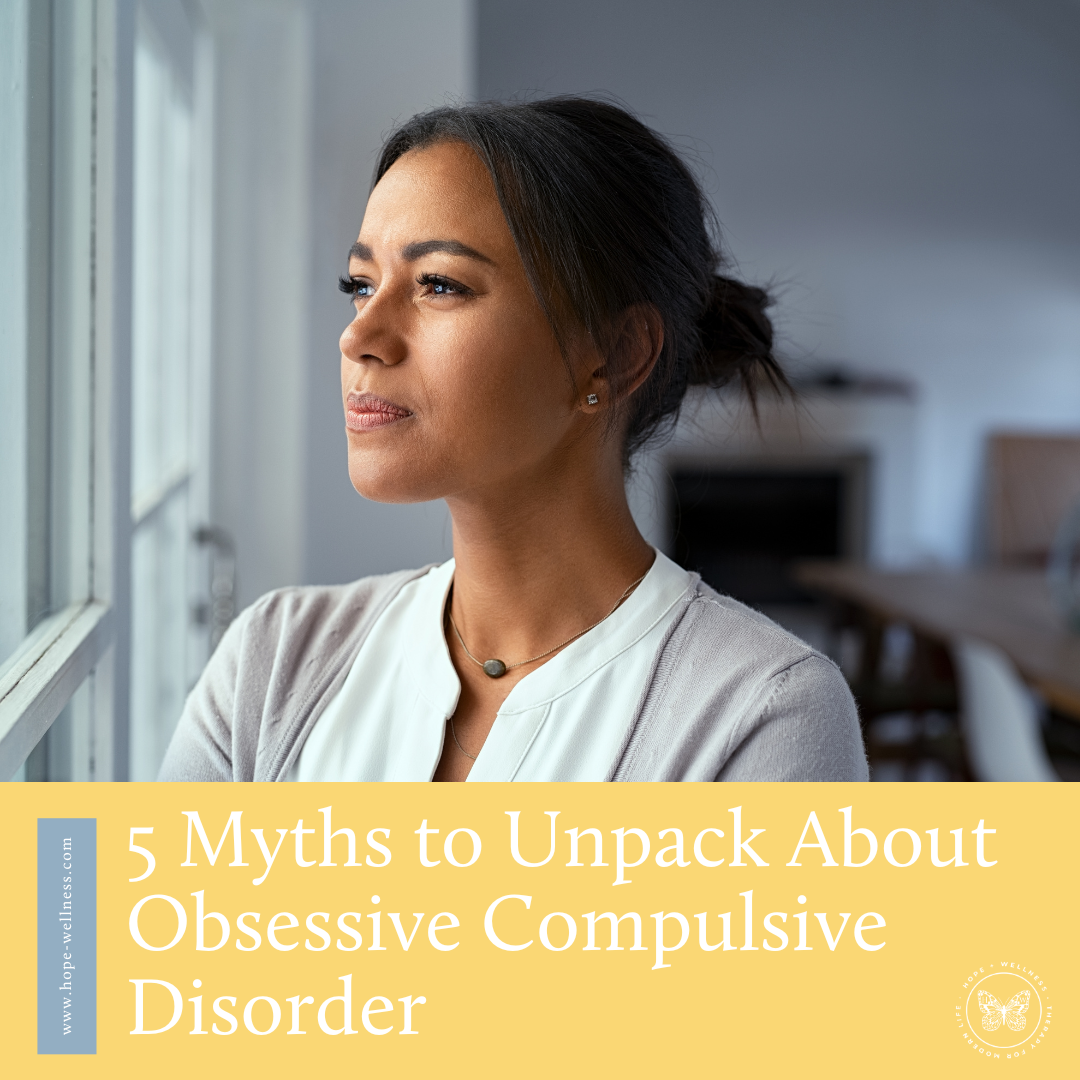
Hope +Wellness Blog
little snippets of advice for everyday challenges many people share

What You Should Know About Exposure and Response Prevention (ERP)
Exposure and Response Prevention (ERP) was developed to treat OCD, and it can be an incredibly effective form of treatment for folks dealing with obsessive thoughts and compulsions.

5 Myths to Unpack About Obsessive Compulsive Disorder
Our common understanding of what Obsessive Compulsive Disorder (OCD) is often based on misconceptions about the disorder. Let’s unpack myths about OCD to better understand this condition.
Hope+Wellness is a mental health practice specializing in the treatment of depression, mood, stress, and anxiety in kids, teens, and adults. This is a blog about living well and finding meaning and purpose in the face of difficult challenges. This is a blog about finding hope.
Archive
- ACT
- ADHD
- Acceptance
- Anxiety
- Authenticity
- Belonging
- Bipolar
- CBT
- Calming
- Change
- Chronic Illness
- Chronic Pain
- Communication
- Community
- Coping Skills
- DBT
- Dating
- Depression
- EMDR
- Emotions
- Entrepreneurs
- Friendship
- Gratitude
- Grief
- Health Psychology
- Hope
- Inspiration
- Intimacy
- Intuition
- Joy
- Letting Go
- Love
- Manic Depression
- Mindfulness
- Miscarriage
- OCD
- Parenting
- Personal Growth
- Positive Vibes
- Quotes
- Relationships
- Resources
- Self-Compassion
- Self-Reflection
- Services
- Sleep
- Spirituality
- Stress Management
- Stress Relief
- Suffering